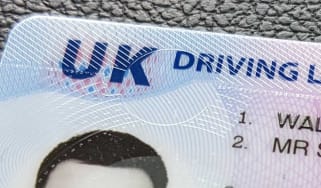UK driving test changes: life-saving skills now required as part of theory exam
From 2026, learners will need to answer questions on CPR and defibrillators

Taking your driving theory test is sure to get your heart racing, but from the beginning of 2026, learners will be expected to answer questions surrounding life-saving techniques.
The Driver and Vehicle Standards Agency (DVSA), which is responsible for conducting driving tests, says that learning these skills is vital because “drivers are often first on the scene when someone suffers a cardiac arrest”.
Specific questions will be asked regarding basic Cardiopulmonary Resuscitation (CPR), as well as how to use a defibrillator. Details of this can already be found within DVSA learning materials, meaning learner drivers preparing to take their theory test in the new year can get clued up on the type of questions they might be asked in the exam.
The push to introduce such questions into the driving theory test was spearheaded by the medical director at Cardiff City FC and chair of Save a Life Cymru, Professor Len Nokes, who lost his young daughter to cardiac arrest in 2017.
“When Claire, my daughter, had her cardiac arrest, some knowledge of CPR might have made a difference,” Nokes said. “[We] hope that by making CPR and how to use a defibrillator part of the theory test, we will be able to significantly increase the number of people who have this life-saving awareness.”
As of the time of writing, the driving theory test comprises 50 multiple-choice questions spread over 57 minutes – this rose from 35 questions in 2007. Now drivers not only have to achieve a score of at least 43, they must also pass the hazard perception test, which has a minimum pass mark of 44 out of 75.
It’s not just the theory test that’s seen changes recently. Earlier in 2025 the practical driving test saw tweaks mainly centred around fewer stops – particularly emergency stops – and spending more time following directions from a sat-nav.
Unfortunately, waiting times for both parts of the test remain stubbornly high, with research by the AA showing that the average wait time as of May 2025 was 21.9 weeks. With over 80 per cent of test centres reporting waits of over five months, it’s hoped that additional driving test capacity funded by the Government will reduce this over time.
Managing director of the AA Driving School, Emma Bush, said: “There are signs of recovery, putting both the industry and learners on tenterhooks for more signs of improvement in the coming months.”
Buy a car with Auto Express. Our nationwide dealer network has some fantastic cars on offer right now with new, used and leasing deals to choose from...









